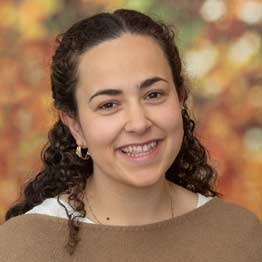Doctoral Thesis
Aging with meaning
Experiences of elderly people, family members and professionals on caregiving in residential settings.
Society is currently experiencing a progressive aging process driven by a declining birth rate and increasing life expectancy. Likewise, in recent years, the number of people residing in collective establishments has increased issue . According to data of the National Institute of Statistics (INE), in 2011 there was an increase of 90.3% over that recorded in 2001 and, of the total number of people residing in collective dwellings, 60.9% lived in nursing homes. This panorama invites us to reconsider the importance of caring for the elderly, especially in residential contexts.
The development of sustainable, cost-effective, and high-quality long-term care services has become a priority for governments around the world (World Health Organization [WHO], 2017). However, evidence on how to support and care for older people living in residential facilities to not only promote a attendance health but to "age with meaning" is scarce. Aging with meaning or meaningful aging has materialized in the literature as a positive concept and of particular relevance to older people living in residential care. However, there is still a lack of research describing the experience of "living with meaning" in these care settings, and how to support this experience at the individual, staff and organizational levels.
In view of the present challenge, this research questions how to exercise an integral and more meaningful care, examining, on the one hand, the current model of health care and, on the other hand, to understand the role played by other professionals, in particular, the hospitality sector (hairdressing, physiotherapy, accommodation, food...).
This thesis is part of the research the Chair on New Longevity.
THIS RESEARCH LOOKS AT HOW TO DEVELOP A SERVICE IN RESIDENTIAL SETTINGS THAT CATERS TO THE DIFFERENT NEEDS OF OLDER PEOPLE, INCLUDING "AGING WITH SENSES
Doctoral student:

Maite Pérez Araluce
mperezara@unav.es
GOALS
1
Know the areas of care of the person in a residential setting.
2
Define, based on the experience of older adults and family members, what characteristics or issues related to caregiving can contribute to meaningful aging or aging with meaning in the residential setting.
3
To explore, from the study and experience of professionals in the field partner-health and hospitality, what characteristics or issues related to caregiving can contribute to a meaningful old age.
4
To develop a Grounded Theory that report the implementation of changes and improvements in the care of the elderly in residential settings.
